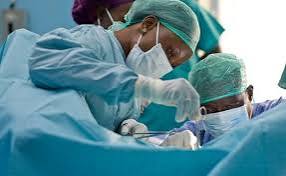- Agency Report
Neurosurgeon experts have called for the urgent alignment of Nigeria’s medical practices with global standards to improve patient outcomes for conditions like acute brain turmoil, spine injuries, strokes, and other neurological emergencies.
The doctors made the call during a neurocritical care conference organised by Wellington Clinics, Abuja, on Saturday.
They emphasised the importance of exploring international best practices in the treatment of neurological emergencies in Nigeria.
The conference also featured virtual participation from experts across Europe, America, and Africa.
Dr Charles Ugwuanyi, Managing Director of Wellington Clinics and former Chairman of NMA-FCT, noted that being in Nigeria should not justify substandard care.
He stressed that Nigerian patients deserved the same high-quality treatment available abroad, whether for trauma, stroke, brain tumours, or cerebrospinal fluid disorders.
“This conference is about bridging gaps, learning from global best practices, and adapting solutions to our local context.
“Trauma from motor vehicular accidents and an increasing number of stroke cases are common issues here.
“By integrating local and international ideas, we can align our practices with globally accepted standards,” Ugwuanyi said.
Ugwuanyi also advocated for Public-Private Partnerships (PPP) to improve the health sector, emphasising that developing healthcare was not solely the government’s responsibility.
He called for increased investment in the healthcare delivery space, which could significantly improve the life expectancy of Nigerians.
Dr Cyril Okpata, a consultant Neurosurgeon at Wellington Clinics, emphasised the importance of Intracranial Pressure (ICP) monitors in neurosurgery, highlighting their essential role in managing brain surgery patients.
“We cannot be certain of elevated ICP without a monitor,” Okpata explained.
Dr Ameachi Onyegbuna, a Radiologist at the National Hospital, Abuja, focused on the challenges faced by neurosurgeons in imaging unconscious patients.
He pointed out that specialised equipment was needed to overcome technical difficulties in obtaining clear diagnostic images quickly, enabling doctors to provide better care. NAN


